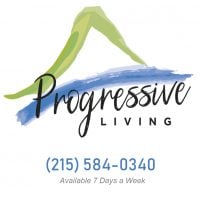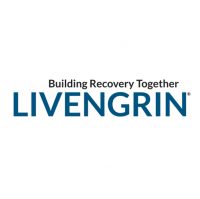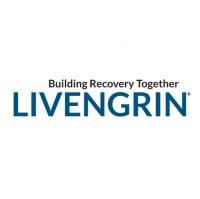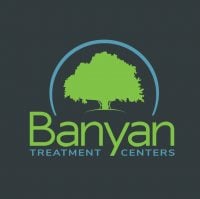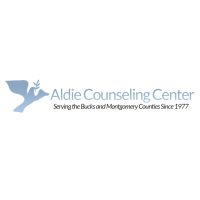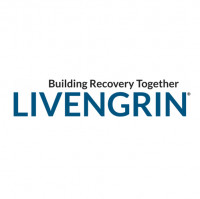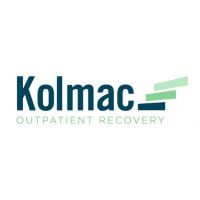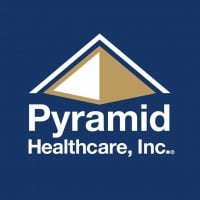Progressive Living
Drug Rehab Center in Levittown, Pennsylvania
Progressive Living in Levittown, PA is an addiction treatment facility that offers a range of services including drug rehab, intensive outpatient, outpatient, partial-hospitalization, sober-living, and residential care, specializing in substance abuse, drug addiction, and alcoholism, all aimed at providing a supportive and structured environment for individuals on their recovery journey.
About Progressive Living in Pennsylvania
Progressive Living in Levittown, PA, stands out as a family of premier sober living residences aimed at individuals 18 and over seeking recovery from drug and alcohol abuse. With a 40-bed capacity and locations throughout Pennsylvania including Bristol, Levittown, and Morrisville, plus an independent house in Ewing, New Jersey, this facility offers a unique community and continuum of care.
Accredited by the Joint Commission on Accreditation of Healthcare Organizations (JCAHO), Progressive Living commits to high-quality addiction treatment services. The facility provides structured recovery housing complementary to PHP and IOP treatment programs, welcoming those with 30 days of sobriety.
- Community-Focused Care: Built on a foundation of community, Progressive Living emphasizes the importance of a supportive network in the recovery journey.
- Flexible Treatment Programs: Offers a range of care levels including Drug Rehab, Intensive Outpatient, and Sober Living, adapting to various needs.
- Accreditation and Structure: JCAHO accreditation guarantees a standard of care, with structured housing that supports progress towards sobriety.
Progressive Living specializes in treating substance abuse, drug addiction, and alcoholism, utilizing a comprehensive approach that includes Drug Rehab, Intensive Outpatient, Outpatient, Partial-Hospitalization, and Residential care to aid in recovery and facilitate long-term sobriety.
Genders
Ages
Modality
Additional
Accreditations

JCAHO
Conditions and Issues Treated
It’s not easy getting sober on one’s own, or even going to rehab and escaping the grasp of addiction by oneself. Substance abuse treatment gives addicts a place to stay sober while learning what it takes to quit for good. They will learn from others about what works and what doesn’t work with remaining drug-free.
Treatment centers such as Progressive Living focus on the needs of individual addicts to heal them. There is a combination of physical and mental therapies that treat the root cause of the addiction, whether it be family problems, stress, or past traumatic events.
The final benefit of substance abuse treatment is introducing new people who can help in your recovery after you leave Progressive Living. Through group therapy sessions with other addicts and attending support meetings once a day, a person will learn how to interact with others and cope with cravings. This is a chance for you to rebuild your social circle healthily after you leave treatment.
Levels of Care Offered
This center offers a variety of custom treatment tailored to individual recovery. Currently available are Drug Rehab, Intensive Outpatient, Outpatient, Partial-Hospitalization, Residential, Sober-Living / Half-Way, with additional therapies available as listed below.
Addicts who need help with their addiction can enroll in an intensive outpatient program (IOP). But the patient won’t live there during treatment.
IOP involves patients visiting a medical office building regularly for therapy and other services while continuing to live their lives.
IOP is a step up from drug or alcohol detox, but it’s still a phase of recovery, not the end goal. Patients in need of IOP have many options for rehab and treatment.
Outpatient treatment is considered the lower intensity level of addiction treatment. It’s ideal for early phase addiction or lower intensity addictions. It may include weekly sessions instead of daily. It may include weekly sessions instead of daily. Peer group support, 12-step programs, and individual counseling may still be involved but at a lesser frequency than an intensive outpatient program. It is a good choice for someone who doesn’t need to go through a medically supervised detox and who has a supportive home environment. It requires motivation and dedication to commit to the program without constant monitoring.
PHP is a program where the individual is cared for in a hospital-like environment during the struggle of those symptoms, but still have some of the freedoms of an outpatient form of treatment. The individual may sleep at the facility each night, or they may sleep at home, but all have more monitoring than an outpatient treatment program typically offers. A PHP is able to live at home, attend school, work or perform other daily activities. This appeals to many families due to the ability of their loved one to still have some freedoms while also receiving treatment for their addiction.
Sober living homes (abbreviated SLHs or sometimes sober houses) are temporary housing for recovering addicts. The typical SLH functions as a halfway house, providing a stable living environment for addicts in recovery. While at an SLH, residents typically meet with various therapists on site and attend regular 12-step meetings as well as other recovery group meetings.
Residential treatment programs are those that offer housing and meals in addition to substance abuse treatment. Rehab facilities that offer residential treatment allow patients to focus solely on recovery, in an environment totally separate from their lives. Some rehab centers specialize in short-term residential treatment (a few days to a week or two), while others solely provide treatment on a long-term basis (several weeks to months). Some offer both, and tailor treatment to the patient’s individual requirements.
Therapies & Programs
Individual therapy involves one-on-one sessions between the patient and therapist. It provides patients with a safe environment to openly discuss personal and sensitive issues with the therapist. They find the therapist as someone they can trust. Individual therapy aims to identify the core issues that would have led the patient to substance abuse and address them effectively. The therapist can develop patient-specific customized solutions through individual therapy, which aids speedier recovery.
Family therapy is a group problem-solving that aims to improve communication and relationships between the addict, their family, and sometimes friends. The main goal of family therapy for drug addiction is to create an environment where communication can occur without judgment, hostility, or blame. The therapist is with the family as they learn to communicate differently, especially with the addict when s/he is using. The family can learn to reduce their enabling behavior or rally together and support each other during tough times.
An addict’s family can play a vital part in helping them to avoid relapse because they can spot the warning signs and help them get back on track before it becomes too much of a problem. Family therapy is one of the most effective ways to help addicts stay on the path to long-term sobriety. When a drug addict decides that they want to try and get sober, it takes the support of every person they love to succeed. It can be incredibly difficult for loved ones to watch an addict go through the pain and suffering of withdrawal, but by being there with them and supporting them, they can help to make sure that the addiction never returns.
Since addiction is a chronic physical and mental illness, addicts need to learn as many life skills as possible. Many drug treatment centers offer life skills activities as part of their addiction recovery programs. Examples include cooking classes, employment training, resume writing seminars, parenting classes, and computer training. Life skills activities help addicts find employment, take care of their families, and give back to the community.
Additional Details
Specifics, location, and helpful extra information.
Levittown, Pennsylvania 19056 Phone Number(215) 584-0340 Meta DetailsUpdated April 15, 2024
Staff Verified
Progressive Living Patient Reviews
There are no reviews yet. Be the first one to write one.
Levittown, Pennsylvania Addiction Information
Pennsylvania ranks 14th in the nation for drug-related deaths. More than 10% of all deaths in Pennsylvania have been related to drugs and alcohol. 30% of Pennsylvania youth reportedly drink alcohol monthly, with more than 20,000 teenagers having an alcohol problem. The rate of opioid misuse in Pennsylvania is double the national average.
In Levittown, Pennsylvania, drug addiction is a significant problem. According to recent statistics, about 9,000 people in the city struggle with addiction to drugs or alcohol. In 2015, Levittown had a drug overdose death rate of 26.3 per 100,000 population. Some of the most common treatments include inpatient or outpatient rehabilitation, 12-step programs, and counseling.
Treatment in Nearby Cities
- Bensalem, PA (4.3 mi.)
- Kingston, PA (93.6 mi.)
- Philipsburg, PA (183.0 mi.)
- Broomall, PA (27.6 mi.)
- Homestead, PA (266.0 mi.)
Centers near Progressive Living
The facility name, logo and brand are the property and registered trademarks of Progressive Living, and are being used for identification and informational purposes only. Use of these names, logos and brands shall not imply endorsement. RehabNow.org is not affiliated with or sponsored by Progressive Living.
